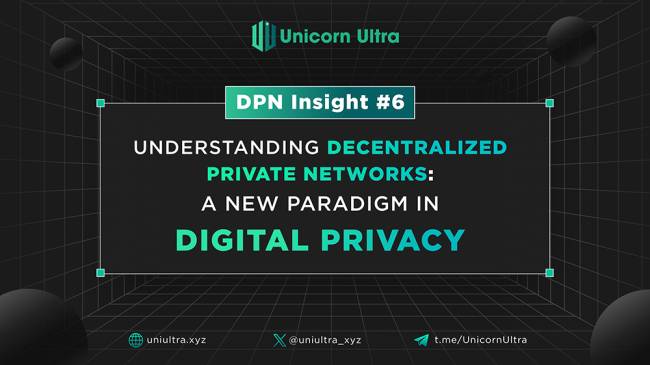This exploration into DPNs will provide an in-depth understanding of their functionality, how they diverge from traditional VPNs, and the crucial role blockchain technology plays in their operation.

Defining DPNs and Their Distinction from VPNs
At their core, DPNs are networks that provide privacy and security through a decentralized framework. Contrasting sharply with traditional VPNs, which rely on centralized servers to route and encrypt internet traffic, DPNs distribute this traffic across multiple nodes.
This decentralization means that no single node has complete control or access to all the user's data, significantly enhancing security and privacy. By design, DPNs mitigate common issues associated with centralized networks, such as server downtime, single points of failure, and vulnerability to targeted attacks.
The Role of Blockchain Technology in DPNs
Blockchain technology is the cornerstone of DPNs. Renowned for its robust security and transparency, blockchain serves as the backbone for these networks. It ensures data integrity and security by maintaining a distributed ledger across numerous nodes.
In a DPN, each data transaction or transmission is recorded on the blockchain, creating an immutable and transparent record. This approach not only ensures the integrity and confidentiality of data but also empowers users with greater control over their digital footprint.
Implications of Decentralization in DPNs
The decentralization inherent in DPNs brings several key advantages. Firstly, it significantly reduces the risk of data breaches and unauthorized access, common concerns in centralized systems. Since the data is spread across various nodes, compromising the user’s privacy and security becomes substantially more challenging for malicious actors.
Secondly, decentralization makes DPNs inherently resistant to censorship and network interference. This is particularly beneficial in regions with strict internet regulations, as it allows for uninterrupted and unmonitored access to the web.
Enhanced Security Features of DPNs
DPNs provide an array of advanced security features that set them apart from traditional VPNs. They employ sophisticated encryption techniques, ensuring that data remains secure as it traverses the network. Additionally, the distributed nature of DPNs makes them less susceptible to attacks such as DNS leaks, man-in-the-middle attacks, and DDoS (Distributed Denial of Service) attacks. The integration of blockchain technology further adds a layer of security, as altering or intercepting data within a blockchain network is extremely difficult due to its cryptographic nature.
Conclusion
The advent of Decentralized Private Networks signifies a new era in the field of digital privacy and security. With their blockchain-based architecture and decentralized model, DPNs offer a promising alternative to traditional VPNs. They address many of the security and privacy challenges faced by internet users today, offering a more resilient and private means of navigating the digital world.
As we continue to witness advancements in internet technologies, the role of DPNs in safeguarding online privacy and security becomes increasingly vital. Embracing DPNs not only marks a technological advancement but also signifies a step towards a more secure, private, and unrestricted internet.





.png)
